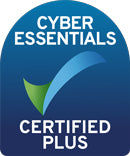Protecting yourself from malaria

Malaria is a tropical disease spread by mosquitoes. If not treated promptly and correctly it can be fatal, but it is preventable and curable.
Each year there are a number of cases of malaria imported into Ireland, but preventing malaria can be simple.
Reduce your risk of contracting malaria
Preventing malaria can be as easy as ‘ABCD’. Remember these rules to stay safe:
A - Awareness
Awareness of high-risk areas is important. Before you travel, find out if you’re going to a malaria risk zone.
B - Bites
Avoidance of bites is important especially as anti-malarial tablets are never 100% effective. Common ways to minimise bites are by using insect repellent (containing DEET), wearing long sleeved clothing during day and night and using a mosquito net soaked in insecticide.
C - Check
Check whether you need to take anti-malaria tablets to protect yourself. Find out what tablets to take, for how long and ensure you take them as instructed and complete the course. To help minimise your chance of catching malaria and protect you from possible serious side effects, it is important that you read the patient leaflet that accompanies the medication carefully.
D - Diagnosis
Diagnosis and prompt treatment is vital. It is important to report any illness to your doctor. Symptoms of malaria include:
- Flu like symptoms
- Headaches
- Vomiting
- Diarrhoea
- Fever
- Sweating, chills and shivers
- Muscle, joint or back pain
If you think you are experiencing these symptoms (even up to a year after traveling) then contact your doctor.
Which anti-malaria tablets are for me?
If you think you need antimalarials for your trip, but are unsure about which ones to choose, then use our comparison table to help make your decision. You can also read about possible side effects.
How can I purchase anti-malaria tablets?
Our doctors can give you advice on the different anti-malaria tablets we offer, and if suitable will issue you with a prescription.



